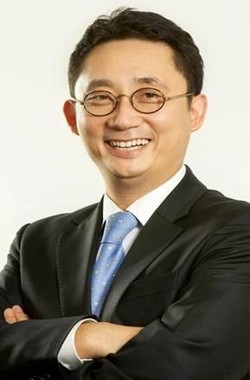Cancer is thought to be synonymous with death and suffering. Therefore, it is easy to find cancer patients among our family and friends.

According to the 2019 national cancer registration statistics in Korea, 1 out of 25 people (a total patient population of 2,147,503 people) are either receiving cancer treatment or have been cured of cancer since 1999, and the number of new cancer patients has been increasing every year since 2015.
If Korean survives to the national average life expectancy of 83 years, the probability that they will get cancer is 37.4 percent. Fortunately, the five-year survival rate of cancer patients after diagnosis has reached 70.7 percent for all cancer patients between 2015 and 2019, and this survival rate is gradually improving.
Cancer is no longer a specific disease but a common one.
Cancer patients suffer not only from the pain caused by cancer itself but from various other pains.
Such pains include physical pain such as pain and anorexia, psychological pain such as fear, anxiety, and depression, social pain due to anxiety about their family's future and social isolation, and spiritual and existential pain surrounding the concept of life and death.
Such emotional pain experienced by cancer patients and their families is classified as distress in medical terms.
The old saying goes, “Even if you roll in the dog feces, life in this world is better than the afterlife,” which roughly has the same meaning as the English proverb “better a live coward than a dead hero,” Koreans value the present. Even in the case of higher religions in Korean society, the focus on health is very strong compared to other countries.
For Koreans with such tendency, the distress such as fear and anxiety about cancer is relatively serious.
However, the systems and medical practices surrounding cancer patients do not provide effective and systematic measures and practices for the healing, management, and overcoming of distress experienced by cancer patients and their families.
This is because policymakers, the medical community, the general public, and patients are not taking this problem seriously.
As a result, the medical field only focuses on the diagnosis and treatment of cancer, for example, chemotherapy, surgery, radiation, and rehabilitation.
According to a survey conducted by the nongovernmental organization (NGO), All Can Korea, on 495 Korean cancer patients in 2020, about 80 percent of cancer patients suffered great mental and psychological shocks regardless of their treatment stage or age.
Notably, the emotional impact was greater for those in their 40s who were socially active than other age groups.
Looking at foreign cases, 35 to 44 percent of cancer patients show clinically significant distress that requires psychiatric treatment, 30 to 60 percent of patients show insomnia, and one in five cancer patients show suicidal tendencies.
It is reported that such distress still strongly affects patients not only during the diagnosis and treatment stage but also after treatment.
According to a survey conducted by the National Cancer Center in 2020 on the difficulties after treatment of 106 cancer survivors, the highest distress was fear of cancer recurrence, followed by fatigue, low self-confidence, insomnia, and a sense of helplessness.
Despite such distress, only a very small percentage of cancer patients use mental health services (about 10 percent, according to one survey).
Now is the time for Korean society to urgently develop a plan to efficiently and systematically manage the distress experienced by cancer patients and their families beyond the diagnosis and treatment of cancer to all stages from diagnosis, treatment, survival, and death.
Cancer patients and their families should not be left to fight on their own. As a journalist once quoted a poem from a poet, “I hope that there is a way everyone to become flowers and prayers of others.”

